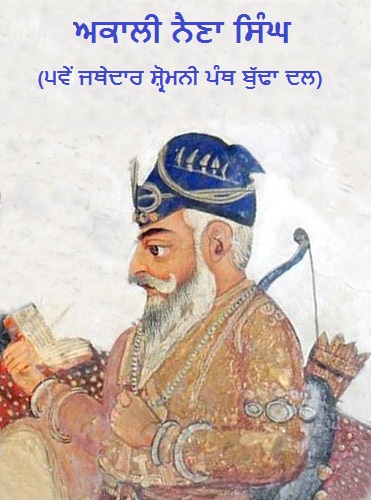BHAGVAN SINGH LAUNGOVALIA (d. 1944), patriot, Akali activist and one of the founders of the Praja Mandal, a platform meant to provide voice to the people of Indian states ruled by Indian princes during British times to ventilate their grievances and protest against the oppression, misrule and extravagances of the autocrats who presided over their destinies, was born in Burma where his father Rur Singh was a soldier in the army. The only child of his parents, he was named Indar Singh. The family originally belonged to the village of Laurigoval in the present Sarigrur district of the Punjab.
GOPAL SINGH (1883-1941), an Akali reformer, was born in November 1883 at the village of Sagari, in Rawalpindi district, now in Pakistan. His father, Sundar Singh (d. 1895) was a small shopkeeper. Within three years of Gopal Singh`s father`s death, his two elder brothers also passed away and the responsibility of looking after the family fell on him. He worked hard to see the family business flourish, and simultaneously started participating in the Singh Sabha activity in the district.
BHAI PHERU, GURDWARA (also called Gurdwara Sangat Sahib), named after its founder, the well known Udasi Sikh preacher Bhai Pherii (1640-1706), is located at Mien ki Maur, in Chuniari tahsil of Lahore district in Pakistan. During Sikh times, large endowments in land extending to about 2,750 acres were inscribed to the shrine which was administered by a line of priests belonging to Sangat Sahib Ke sect of Udasi Sikhs. As a campaign for bringing the Sikh places of worship under the management of a central body, the Shiromani Gurdwara Parbandhak Committee, formed in 1920, negotiations were opened with the mahant or custodian for the transfer of the Bhai Pheru Gurdwara and the landed property attached to it.







